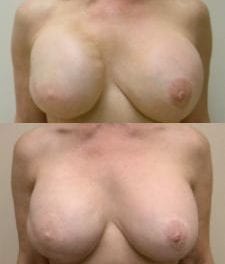Jane Fonda took offense last week when Megyn Kelly asked her why the actress had said she “wasn’t proud” that she’d had plastic surgery. “We really want to talk about that now?” the annoyed star shot back, giving Kelly a disdainful look that quickly became an internet meme.
Her reaction made Fonda an instant hero. “Fonda handled it like a champ,” wrote CNN commentator Mel Robbins in a typical response. “A Master Class in Handling Ageism,” Fortune called it. “ALL HAIL QUEEN JANE,” declared blogger Luvvie Ajayi.
Kelly’s question, everyone seemed to agree, was impertinent, sexist, and insulting. A properly respectful reporter would never ask an aging star to talk about plastic surgery. “We can focus on what she’s created, what she’s accomplished, what she’s thinking,” preached the Chicago Tribune’s Heidi Stevens. Let her talk about her movie!
Contrary to the critics, Kelly’s mistake wasn’t that she introduced a trivial question into a serious discussion. It’s that she naively assumed she could hijack what amounted to a video press release with a legitimate reportorial inquiry. Kelly didn’t stick to the Hollywood script.
Fonda will turn 80 in December. She could pass for 60. She is one of the few serious actresses who has had good plastic surgery — the subtle, effective kind she might get away with denying — and has publicly acknowledged the alterations. Usually the only people in Hollywood who’ll admit they’ve had work done are plastic-surgery disasters or comediennes, whose singular frankness on the subject is the theme of the new documentary Take My Nose Please!
“Fonda posted her surgeon’s name on her web diary, and talked to multiple TV hosts about her face work while on a 2012 press tour. In those interviews the question was not off-limits,” says Joan Kron, the documentary’s director-producer and a veteran chronicler of the science and culture of cosmetic surgery. (Kron is a friend and I make a brief appearance as a talking head in the film.) “But when sitting with [co-star Robert] Redford, who is amazingly youthful looking for his age but has spoken out against Hollywood’s overuse of Botox, perhaps she was trying to protect him from the subject or herself from his criticism.”
In less-contentious settings, Fonda has said she had the work done to buy herself more time as an actress and to bring her appearance in line with her self-perception. “I would walk by a store window and catch sight of myself,” she told NPR’s Diane Rehm in 2011, pantomiming jumping back in horror. “Whoa, who’s that? I don’t feel like that person in the reflection looks like, and I decided that I wanted to look more like how I feel.”
As a model of aging, Fonda is the opposite of Hugh Hefner, who died at 91 as a perpetual adolescent whose era had long passed. She is constantly reinventing herself. “She’s always moving forward, and doesn’t look back,” Redford told Kelly. Fonda’s physical transformation is part of that story. Yet even as she acknowledges her perfectly understandable professional and personal reasons for having cosmetic surgery she seems to regard it as sign of personal weakness.
Kelly had the audacity to ask why. It’s a good question. Why must public figures pretend that “aging gracefully” means accepting whatever nature doles out? Why can’t cosmetic surgery be as morally neutral as makeup or hair dye? Why do we surround cosmetic surgery with obfuscations and outright lies?


